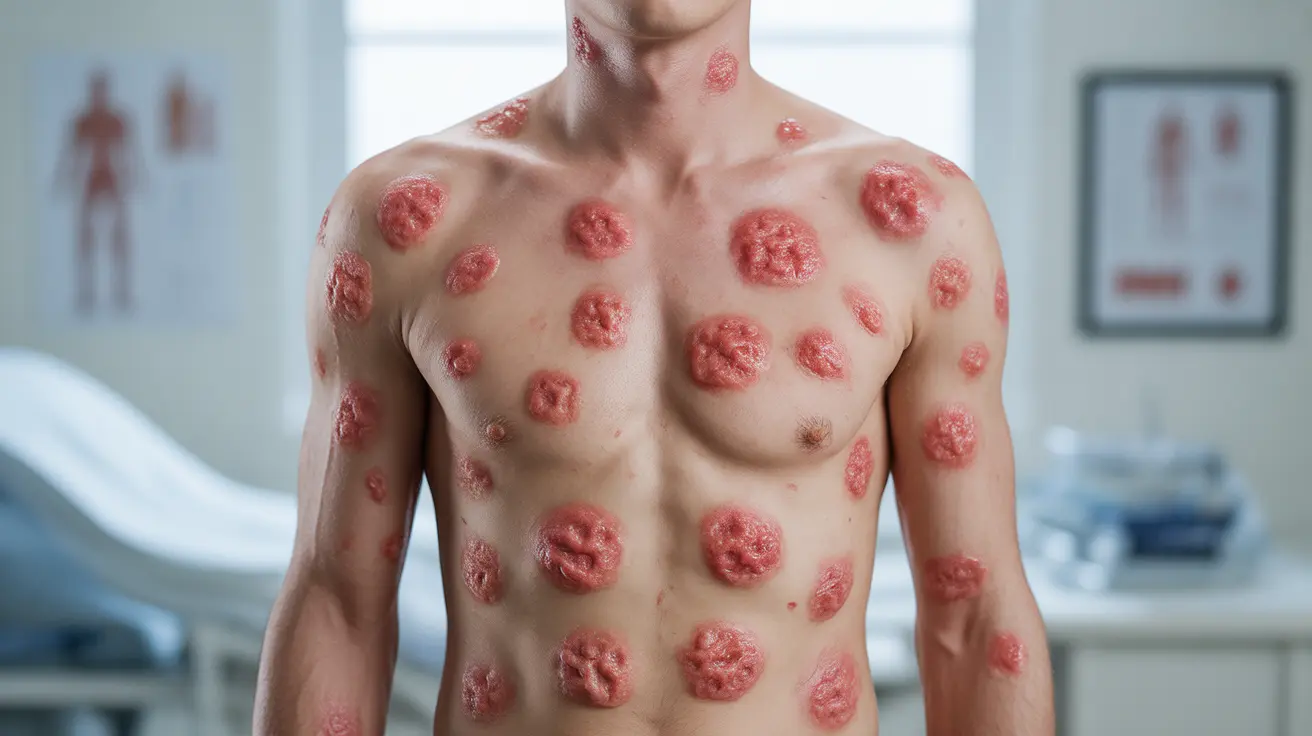Eczema vaccinatum is a serious complication that can occur when people with eczema or atopic dermatitis are exposed to the smallpox vaccine virus. This rare but potentially severe condition requires immediate medical attention and understanding its risks is crucial for those with skin conditions.
While smallpox vaccination is no longer routinely administered to the general public, understanding eczema vaccinatum remains important for medical professionals and individuals with eczema, particularly in specialized circumstances where vaccination might be necessary.
What is Eczema Vaccinatum?
Eczema vaccinatum occurs when the vaccinia virus, used in smallpox vaccines, spreads across areas of skin affected by eczema or atopic dermatitis. The condition develops when either the person with eczema receives the smallpox vaccine directly or comes into close contact with someone recently vaccinated.
Symptoms and Development
The symptoms of eczema vaccinatum typically develop within 4-30 days after exposure to the vaccinia virus. The condition presents with distinctive characteristics that set it apart from regular eczema flares:
- Widespread painful blisters and pustules
- Severe inflammation across eczema-affected areas
- High fever and general illness
- Swollen lymph nodes
- Significant discomfort and pain
Risk Factors and Complications
Certain individuals face higher risks of developing eczema vaccinatum:
- People with active or recent eczema
- Individuals with compromised immune systems
- Young children with atopic dermatitis
- Close contacts of recently vaccinated individuals
Complications can be severe and may include:
- Secondary bacterial infections
- Severe scarring
- Systemic infection
- Potential organ damage
- In rare cases, death
Treatment Approaches
Treatment for eczema vaccinatum requires immediate medical intervention and typically involves:
- Vaccinia Immune Globulin (VIG) administration
- Antiviral medications
- Intensive supportive care
- Careful wound management
- Monitoring for complications
Prevention and Precautions
Preventing eczema vaccinatum focuses on avoiding exposure to the vaccinia virus:
- Individuals with eczema should not receive the smallpox vaccine
- Avoid close contact with recently vaccinated individuals
- Maintain good skin barrier function
- Report any suspected exposure immediately
- Follow medical professional guidance regarding vaccination
Distinguishing Features from Other Conditions
Eczema vaccinatum has distinct characteristics that differentiate it from other vaccine-related skin reactions:
- More extensive than typical vaccine reactions
- Specifically affects eczema-prone areas
- More severe systemic symptoms
- Different progression pattern
- Requires specialized treatment
Frequently Asked Questions
What are the symptoms of eczema vaccinatum and how quickly do they appear?
Symptoms typically appear within 4-30 days after exposure and include widespread painful blisters, severe inflammation, high fever, and swollen lymph nodes. The condition specifically affects areas where eczema is present or has been present previously.
How is eczema vaccinatum treated, and what medications are typically used?
Treatment involves Vaccinia Immune Globulin (VIG), antiviral medications, and intensive supportive care. Patients require careful monitoring in a hospital setting, and treatment must begin promptly to prevent serious complications.
Can you prevent eczema vaccinatum if you have eczema, and what precautions should you take?
Prevention involves avoiding the smallpox vaccine and contact with recently vaccinated individuals. People with eczema should inform healthcare providers about their condition before receiving any vaccinations and maintain good skin care practices.
What are the risks of eczema vaccinatum, and is it fatal?
Eczema vaccinatum can be life-threatening if not treated promptly. Risks include severe infection, organ damage, and potential death. However, with modern medical treatment, most cases can be managed successfully if identified early.
How does eczema vaccinatum differ from other skin conditions like generalized vaccinia or progressive vaccinia?
Eczema vaccinatum specifically affects areas with current or previous eczema and tends to be more extensive than generalized vaccinia. Unlike progressive vaccinia, which occurs in immunocompromised individuals, eczema vaccinatum is specifically related to skin barrier dysfunction in eczema patients.




